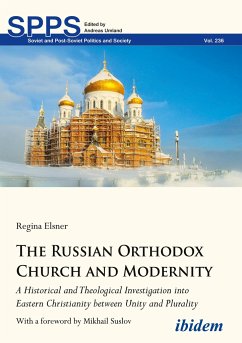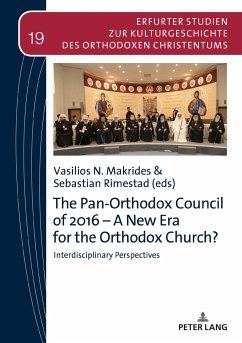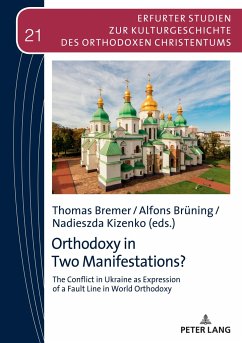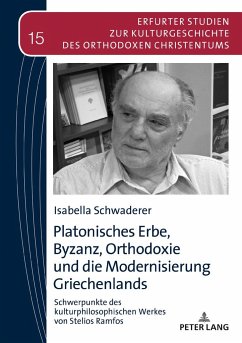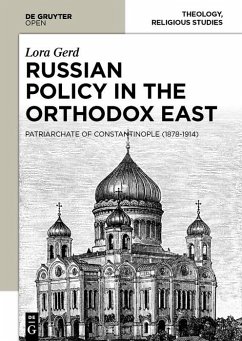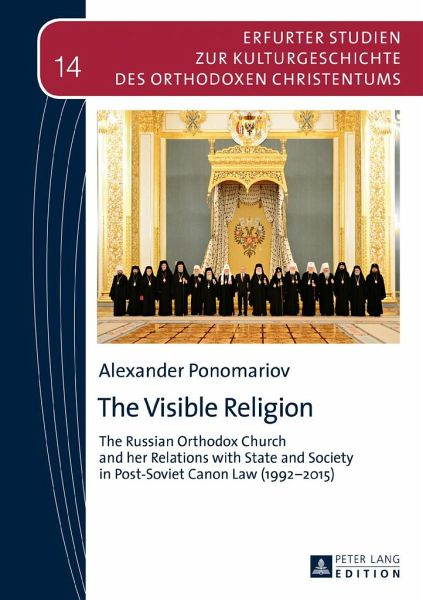
The Visible Religion
The Russian Orthodox Church and her Relations with State and Society in Post-Soviet Canon Law (1992-2015)
Herausgegeben: Makrides, Vasilios N.
Versandkostenfrei!
Versandfertig in 6-10 Tagen
94,05 €
inkl. MwSt.

PAYBACK Punkte
0 °P sammeln!
«The Visible Religion» is an antithesis to Thomas Luckmann's concept. The Russian Orthodox Church in post-Soviet canon law suggests a comprehensive cultural program of modernity. Researched through the paradigms of multiple modernities and post-secularity, the ROC appears to be quite modern: she reflects on herself and the secular environment, employs secular language, appeals to public reason, the human rights discourse, and achievements of modern science. The fact that the ROC rejects some liberal Western developments should not be understood in the way that the ROC rejects modernity in ge...
«The Visible Religion» is an antithesis to Thomas Luckmann's concept. The Russian Orthodox Church in post-Soviet canon law suggests a comprehensive cultural program of modernity. Researched through the paradigms of multiple modernities and post-secularity, the ROC appears to be quite modern: she reflects on herself and the secular environment, employs secular language, appeals to public reason, the human rights discourse, and achievements of modern science. The fact that the ROC rejects some liberal Western developments should not be understood in the way that the ROC rejects modernity in general. As a legitimate player in the public sphere, the ROC puts forward her own - Russian Orthodox - model of modernity, which combines transcendence and immanence, theological and social reasoning, an afterlife strategy and cooperation with secular actors, whereby eschatology and the human rights discourse become two sides of the same coin.





